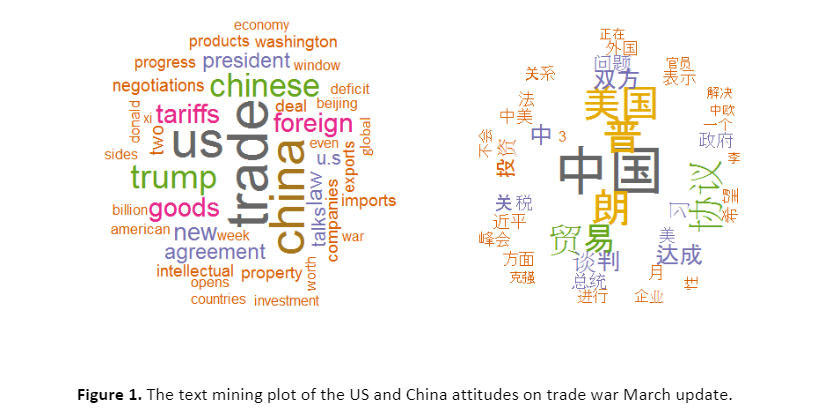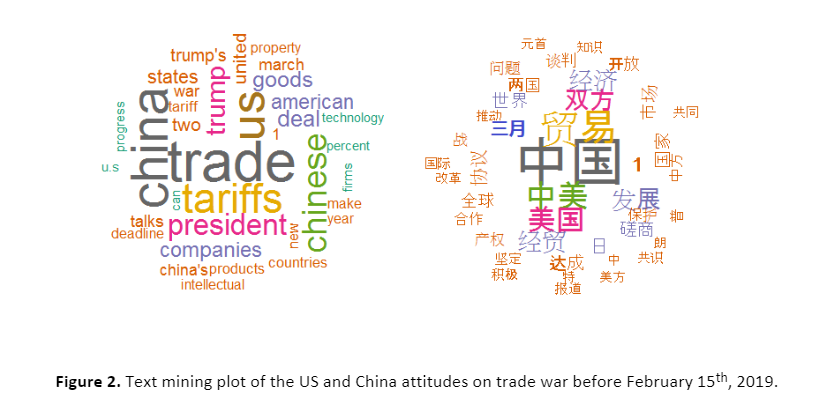posted by Jing Tang on Thursday, March 28, 2019
From our previous article, we compared the attitudes from the different perspectives of American and Chinese regard to the trade war (trade talks) since March of 2018. After the last round negotiation on February 15th, 2019, President Trump has delayed tariffs scheduled for March 1st on Chinese goods because they are “moving along nicely with Trade discussions”, said in his tweet. Also, he asked China to “immediately remove all tariffs on agricultural products”. And, China has submitted and passed a new foreign investment law at the Second Session of the Thirteenth National People’s Congress on March 15th, which aims to prevent forced intellectual property transfer and protect foreign companies’ commercial and trade secrets. In this article, we’d like to exam again the perspectives from both sides after last round negotiation.
The same text mining method using R studio was applied. The announcements and news came from the same mainstream medias in both languages (Chinese and English) as the previous analysis. Data were collected from February 19th, 2019 to March 20th, 2019. Figure 1 shows the key words, which showed up more than 25 times within the text data sets in both languages, after the last round negotiation. While in Figure 2, it shows the key words (shown up more than 25 times in the text data) before the last trade negotiation.


Except for the most common words, such as “trade”, “china”, “trump”, “president”, etc., the common words, before and after the last round negotiation, are still “intellectual property” and “tariffs”. With the negotiation moving forward, the contents are more in details, such as “exports”, “imports”, “foreign investment law”, “billion”, and “opens window”, which are not in the key words group before the last round of negotiation. Also, we notice that a new common word – “global”, after the negotiation, showed from both sides. According to BBC News, “the trade war has prompted worries in financial markets about the impact on the global economy.”
Since 2018, the trade war between the two countries has taken its toll on both economies, even for the global economy. So far, it has cost American $7.8 billion (0.04% of GDP), according to Fajgelbaum and co-workers [1]. China exports saw the biggest fall in three years in February, plunging 20.7% from the previous year; and imports dropped 5.2%, according to BBC News. “The whole trade war and tariffs, that type of thing creates a lot of instability and uncertainty. So, the sooner we can get our trading partners to come to the table in good faith, offer fair and reciprocal treatment, the better the entire world economy will be.” Senator Ron Johnson said.
Reference
[1] Fajgelbaum, Goldberg, etc., The Return to Protectionism, NBER Working Paper No. 25638, March 2019. https://www.nber.org/papers/w25638.